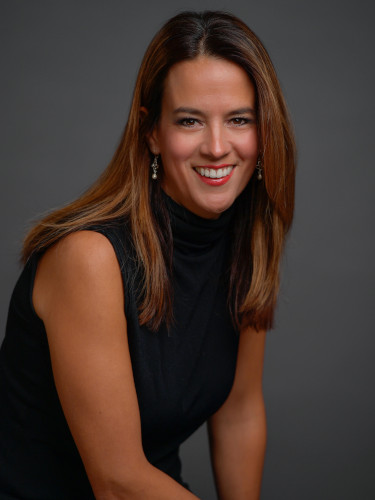This is the second in a series of articles about the high costs of divorce by Elke Rubach, president of Rubach Wealth. Find the first one here.
Here’s the truth no one wants to say out loud: Divorce doesn’t just end a marriage—it reshapes a family’s emotional DNA.
When wealth is involved, the damage doesn’t stop at the couple. It echoes through estate plans, family businesses, trusts and every generation that follows.
Children, whether they are minors or adults, often are unintended casualties in high-net-worth divorces. In addition to the emotional impact, divorce can unravel long-standing plans, fracture family unity and upend the structure that supports generational wealth.
Family offices and advisors have a responsibility not just to manage the financial logistics but to help families protect what truly matters: relationships, roles and long-term cohesion.
It’s a legacy disruptor
In affluent families, children are often involved in the family enterprise, whether through management, business succession, philanthropic leadership, real estate holdings or even governance discussions. When a divorce happens, especially one with high tension or poor communication, everything is put at risk.
The family must decide who stays involved in the family business. In estate planning, are adult stepchildren now included? Will one parent restructure their estate to favour a new spouse? How do beneficiaries react when wealth is split or reallocated?
These are questions no child—or advisor—wants to be asking. But they arise frequently when divorce isn’t handled with foresight.
‘Staying for the children’ can be just as damaging
It’s a well-intentioned phrase we’ve all heard: “We stayed together for the kids.” But the uncomfortable truth is that children often know when the love has gone, even if no one says it aloud.
In high-net-worth families, this often means staying in cold, transactional relationships to preserve wealth or public image. But doing so may have unintended consequences.
For one, children begin to normalize emotional distance as the standard for relationships. Tension and resentment become part of daily life, creating anxiety and fractured attachments. Family values feel performative, not genuine, especially when legacy messaging doesn’t align with home reality.
Preserving the appearance of unity, without real connection or respect, can cause deeper emotional confusion than a well-supported, respectful divorce, especially when children watch their parents make choices based on money rather than well-being.
The emotional cost becomes a financial one
Children of divorce, particularly those raised in high-net-worth families, may experience ripple effects that show up years down the line:
- They might feel distrust in advisors or systems. If one parent feels financially blindsided, children may lose confidence in legal and financial structures.
- They avoid responsibility. Some heirs hesitate to step into leadership roles after watching their parents’ breakdown.
- They feel resentment regarding inheritance. When wealth is reshaped post-divorce, children may feel punished or displaced, especially in blended families.
- Siblings turn adversarial. Dividing assets among children from multiple marriages often leads to confusion, perceived favouritism or full-blown disputes.
Wealth, when not handled with clarity and care, becomes a weapon of influence or control. Divorce accelerates that risk.
What children wish their parents had done differently
In conversations with families I’ve worked with, one message from children comes through consistently: It wasn’t the divorce that hurt most—it was being kept in the dark.
They say their parents decided everything without them, and they were expected to adapt. They think their parents fought over money but ignored what mattered to the family. And then the children felt like they needed to pick sides.
In many families, children are told early on, “One day, this will be yours.” But post-divorce, those assurances can dissolve into silence—or worse, secrets.
The estate planning minefield
Once a divorce is in motion, a cascade of updates and adjustments must follow, yet they often don’t.
Wills and powers of attorney might still name a former spouse, unintentionally giving them legal control in case of incapacity or death. Registered plans such as RRSPs and TFSAs may have outdated beneficiary designations. Trusts and holding companies may no longer align with new family structures or intentions. And family foundations or donor-advised funds may become awkwardly co-managed between ex-spouses, or fall into disuse altogether.
Without planning, the next generation ends up paying for the oversight with their time, their money and often their peace of mind.
Surround yourself with the right team
As a trusted advisor, there comes a moment when you have to say, “This is where my expertise ends.” That’s where a strong, collaborative, professional network becomes invaluable.
A well-supported family navigating divorce doesn’t just need legal advice—they need guidance from tax professionals, estate lawyers, insurance specialists, therapists and sometimes mediators. This is where family offices can truly shine, by being the hub that brings all the right players together at the right time.
For advisors, it’s not about having all the answers yourself. It’s about ensuring the right people are in the room when the decisions are being made. That’s how you turn a moment of crisis into an opportunity for structure, clarity and long-term protection.
A final thought
Whether a family stays together or separates, the children always inherit the outcome.
If you want to preserve a legacy, protect the people at the heart of it. That means having uncomfortable conversations, making difficult changes and ensuring that the next generation isn’t left with confusion and resentment, but with clarity and stability.
Because when divorce is handled poorly, it doesn’t just end a chapter. It rewrites the whole book.

Elke Rubach is a Certified Financial Planner with CLU and MFA-P designations. Her expertise lies in optimizing income and tax efficiencies, achieving cohesiveness in financial and estate plans, and providing ongoing asset management strategies that foster wealth accumulation and growth. Elke is a reformed lawyer who earned her graduate degree in law, with a focus on banking and finance, at the London School of Economics, where she studied on a Chevening Scholarship. She worked as an associate at the London (U.K.) and Toronto offices of the law firm McCarthy Tetrault. During a stint in banking, Elke observed the life-changing impact of good financial advice and decided to switch to a career in financial planning and wealth management. She founded Toronto-based Rubach Wealth in 2012. Today, Elke is a sought-after speaker on wealth management, estate planning and philanthropy. She’s the founder of Fashion Heals for SickKids, which has raised more than $500,000 for pediatric cancer care and research since 2016. She also gives back with board and volunteer commitments with the Professional Advisory Council for SickKids Foundation, the Investment Committee at the Office of the Public Guardian, the advisory board for Transpod Inc., and the board of Ronald McDonald House Charities in Toronto.
The Canadian Family Offices newsletter comes out on Sundays and Wednesdays. If you are interested in stories about Canadian enterprising families, family offices and the professionals who work with them, but like your content aggregated, you can sign up for our free newsletter here.
Please visit here to see information about our standards of journalistic excellence.




